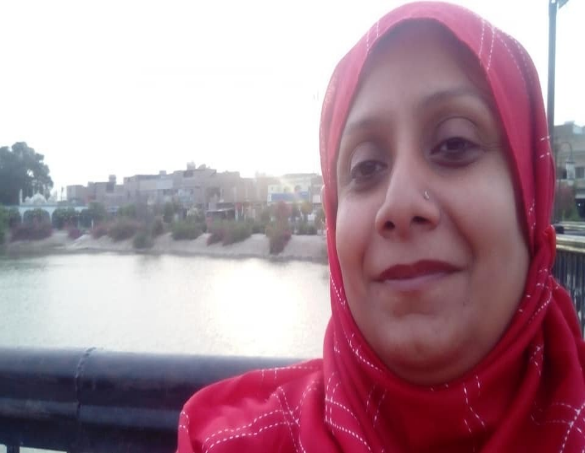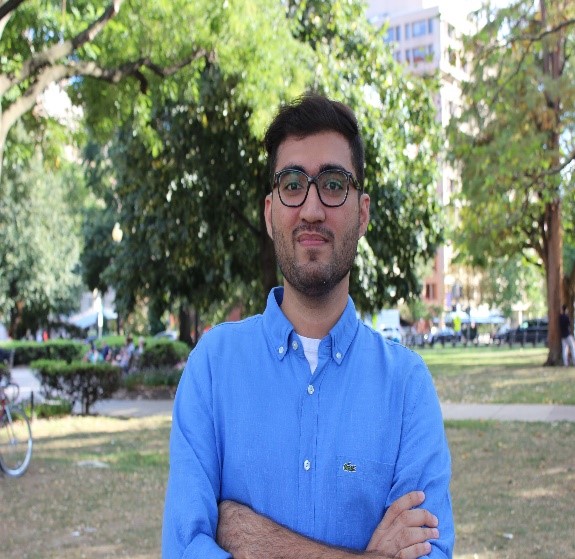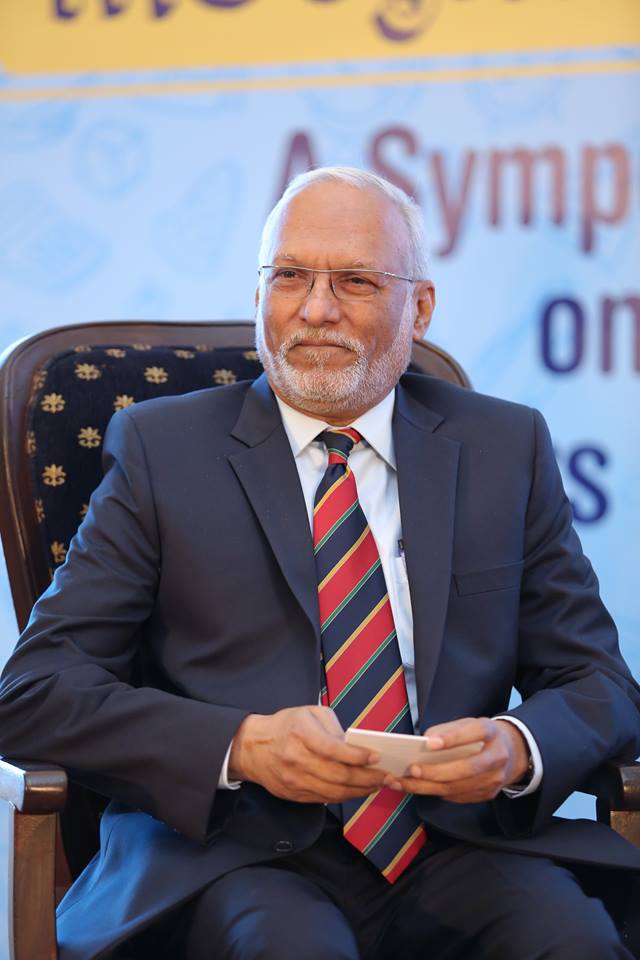INTRODUCTION
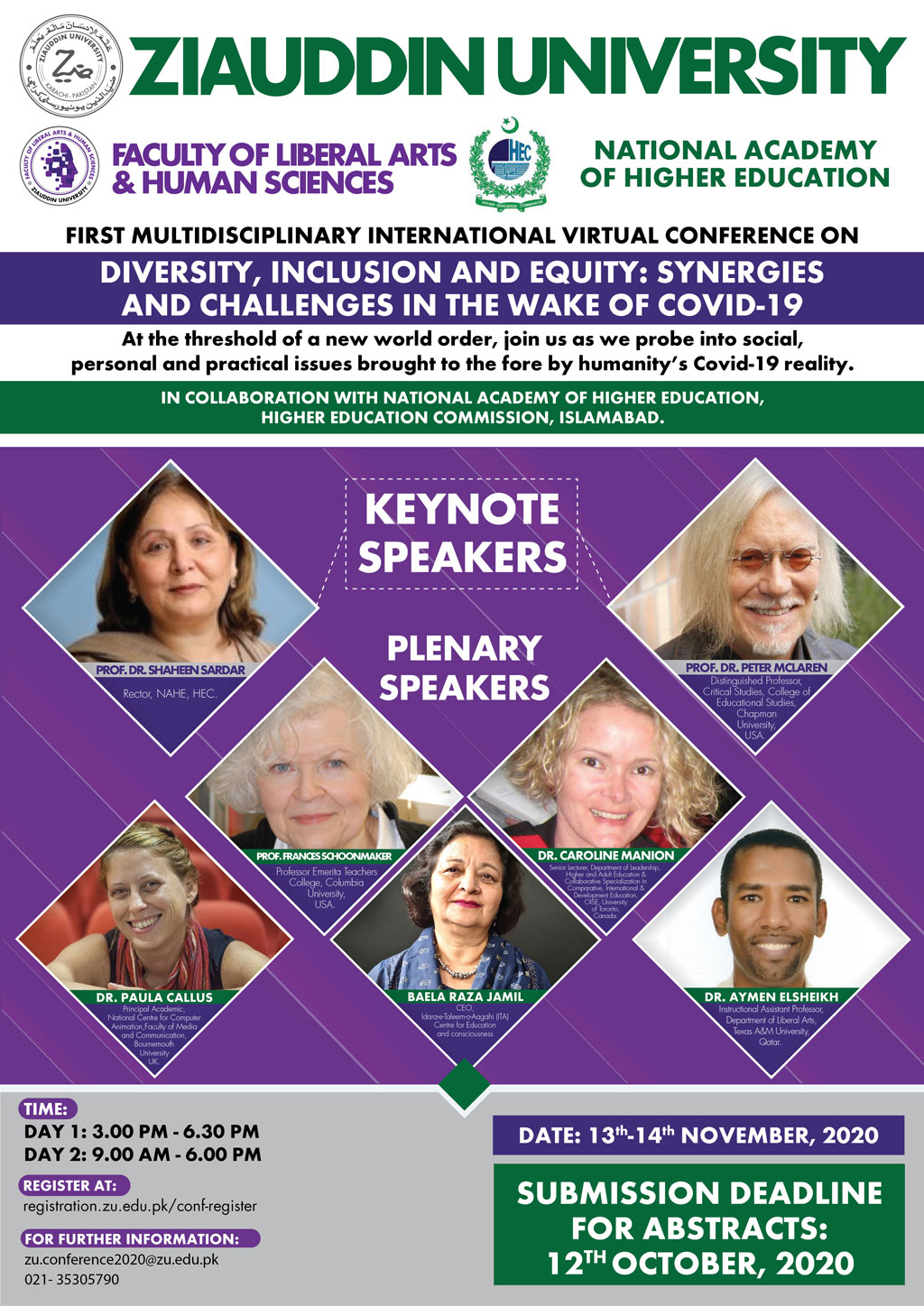
WELCOME NOTE
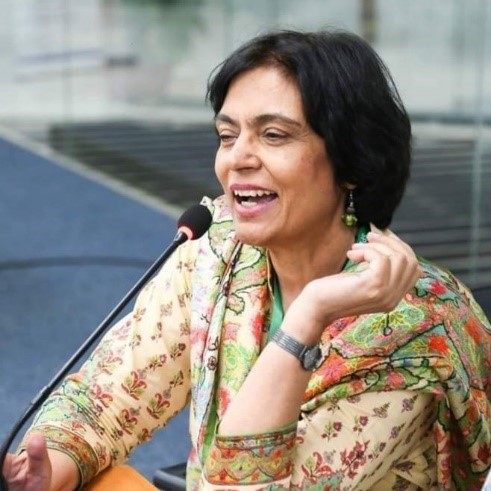
Dr Fauzia Shamim
Professor and Dean, Faculty of Liberal Arts and Human Sciences, Ziauddin University
Conference Chair
I’m pleased to share, on behalf of the organizing committee, that Ziauddin University’s Faculty of Liberal Arts and Human Sciences (FLAHS) is organizing its First Multidisciplinary International Virtual Conference on Friday 13th & Saturday 14th November 2020, in collaboration with National Academy of Higher Education, HEC, Islamabad. The aim is to bring together varied expertise and perspectives from a range of disciplines at one platform in order to discuss, debate and dialogue on social issues that are particularly relevant in the wake of Covid-19.
The Call for Papers is now OPEN for the conference. The last date for submission of abstracts is: 12 October, 2020.
We hope to publish selected conference papers in a co-edited book with NAHE-HEC on the conference theme.
Looking forward to welcoming you all to the ZU-FLAHS virtual conference in November 2020.
ABOUT CONFERENCE
The Faculty of Liberal Arts and Human Sciences is committed to multidisciplinary work. Hence, a conference is being conducted to bring together the varied expertise and interests of academia and representatives of key sectors such as Business and Health at one platform in order to discuss, debate and dialogue on social issues that are particularly relevant in the wake of the Covid-19.
Sub-Themes
- Language, Culture and Identity
- Access and Equity in Education and Health
- How Limitations Breed Innovations: Communication renaissance in the wake of Covid-19
The papers within each theme will address an interdisciplinary field of research and practice dealing with practical problems related to social issues, language and communication, etc. that can be identified, analyzed or solved by applying available theories, methods and results of research, or by developing new theoretical and methodological frameworks in the given/allied fields.
COMMITTEES
Patron-in-Chief
Dr. Asim Hussain
Chancellor
Ziauddin University
Patrons
Prof. Dr. Pirzada Qasim Raza Siddiqui
Vice Chancellor
Ziauddin University
Dr. Nida Hussain
Pro Chancellor
Ziauddin University
Organizing Committee
- Prof. Dr. Fauzia Shamim, Dean, Faculty of Liberal Arts and Human Sciences (Chair)
- Dr. Muhammad Asif, Director, QEC
- Ms. Tehmina Lodhi, Principal, Ziauddin College of Media Sciences (ZCOMS)
- Ms. Rana Hussain, Principal, Ziauddin College of Education (COE)
- Dr. Almas Farhan, Director, CPD
- Mr. Ghous Qadri, Director, ORIC
- Ms. Fatima Jafri, Lecturer, College of Languages, Literature and Culture (CLLC)
- Mr. Murtaza Ahmed, Manager Marketing
- Mr. Mobeen Aslam, Head IT
- Mr. Amir Shahzad, Senior Manager, PR & Communications
Scientific Committee
- Ms. Rana Hussain (Chair)
- Dr. Sajida Zaki, Chair, Humanities Department, NED University
- Dr. Jaffer Ahmed, Director, Institute of Historical and Social Research, Sohail University
- Dr. Nelofer Halai, Meritorious Professor, AKU-IED
- Mr. Sajjad Haider, Media Communication Professional
- Dr. Mehvish Saleem, Head, Department of Languages and Communication, Institute of Business Management, Karachi
- Dr. Nusrat Rizvi, Coordinator, AKU-IED
- Dr. Fatima Dar, Director, Center for Teaching Excellence and Learning Innovation, IQRA University
Networking and Social Events Committee
- Dr. Almas Farhan (Chair)
- Mr. Latif Abbasi, Associate Professor, ZCOMS
Marketing, Social Media and IT Committee
- Ms. Tehmina Lodhi (Chair)
- Mr. Amir Shehzad, Senior Manager PR
- Mr. Mobeen Aslam, Head IT
- Ms. Fatima Jafri, College of Languages, Literature and Culture (CLLC)
- Ms. Noor-e-Sehar, ICT Specialist, FLAHS
- Mr. Faisal Haroon, Marketing Department
- Ms. Sehar Nadeem, Marketing Department
Pre-Conference Workshops
- Dr Kiran Hashmi, Assistant Professor, COE (Chair)
- Ata Syed, Assistant Professor, ZCOMS
- Ms. Marium Ezam, Lecturer, CLLC
SPEAKERS
Keynote Speakers
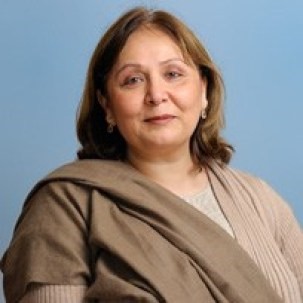
Prof. Dr. Shaheen Sardar Ali
Rector, National Academy of Higher Education, Higher Education Commission
Bio: Shaheen Sardar Ali has held professorial positions at the Universities of Peshawar, Warwick, and Oslo. She was Vice-Chair of the United Nations Working Group on Arbitrary Detention (2008-2014). Professor Ali served as cabinet Minister for Health, Population Welfare and Women Development, Government of the Khyber Pukhtunkhwa Province of Pakistan and Chair of Pakistan’s first National Commission on the Status of Women (1999-2001). In 2012, she was named one of the 100 most influential women of Pakistan. Professor Ali has published extensively in Islamic law, international human rights law including human rights of women and children and family law. She is the author of 9 books, 41 journal articles and 30 book chapters as well as a number of reviews and reports for national and international bodies. Her most recent monograph, Modern Challenges to Islamic Law (Cambridge University Press, 2016) has been widely acclaimed as a ground-breaking contribution to Islamic law scholarship.
Topic: Diversity, Inclusion and Equity: Synergies and Challenges in the wake of Covid-19
Abstract:
This paper reflects upon some of the responses to the Covid-19 pandemic in the higher education sector by the National Academy of Higher Education (NAHE) under the auspices of the Higher Education Commission of Pakistan. The paper will discuss (i) the series of Covid-19 Guidance notes issued by HEC to HEIs and, (ii) the processes and procedures developed by NAHE to switch to online capacity building of early career academics under the National Faculty Development program. In doing so the paper critically analyses the challenges as well as the opportunities of the pandemic and its (un)intended consequences. On the positive aspects, the paper argues that in addition to substantive content on teaching and learning, research and academic governance, the transformation to online delivery of the program forced new skills and competencies upon the participants. These included familiarity and using of Learning Management Systems (LMS) such as Moodle, teaching and learning on Ms Teams, ‘netiquette’, as well as collaborative online reading and writing. On the challenging aspects, we discovered that women with caring responsibilities working from home brought yet a further burden as they were forced to look after young children, attend to their daily needs, facilitate children’s online learning, household chores as well as engage with their capacity building program. Women employees nationally (and internationally) too, worked under these unforeseen pressures and constraints and with little or no support from employers. The paper therefore also seeks to highlight these gaps and lack of any coherent policy of addressing this highly gendered workplace scenario under the work from home policy. Finally, the paper raises the issue of how the Covid-19 pandemic has increased the gap between those with access to the internet and those deprived of it – with all its attendant consequences.

Prof. Dr. Peter McLaren
Distinguished Professor, Critical Studies, College of Educational Studies, Chapman University, USA.
Bio: Peter McLaren is Distinguished Professor in Critical Studies, College of Educational Studies, Chapman University, where he is Co-Director of the Paulo Freire Democratic Project and International Ambassador for Global Ethics and Social Justice.[1] He is also Emeritus Professor of Urban Education, University of California, Los Angeles, and Emeritus Professor of Educational Leadership, Miami University of Ohio. He is also Honorary Director of Center for Critical Studies in Education in Northeast Normal University, Changchun, China.
With acclaimed books, Capitalists and Conquerors and Postdigital Dialogues on Critical Pedagogy, Liberation Theology and Information Technology under his name, Peter McLaren has authored and edited over forty-five more books and hundreds of scholarly articles and chapters. His writings have been translated into over 20 languages.
Topic: Education, the Pandemic and Capital
Abstract
This talk will discuss current attempts at educating students at an historical inflection point that is witnessing a global pandemic, the crisis of capitalism, the degradation of nature in the era of the Capitalocene, and mass uprisings against racial injustice. The talk will address the way school boards and universities have addressed reopening educational institutions during the pandemic. The talk also explores how Covid-19 has exposed structural inequalities linked to race and compounded by environmental conditions. Because Covid-19 has exposed the contradictions of contemporary capitalism, the talk will cover such issues as capitalist social relations and the natural world (such as in agrarian production and global commerce), the interaction of pathogens in a globalized society, the importance of creating a global infrastructure to combat future pandemics and the need to uproot capitalism.
Plenary Speakers
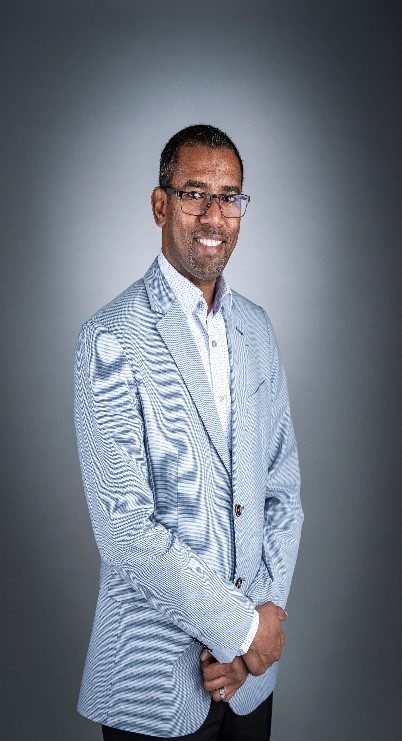
Dr. Aymen ElSheikh
Instructional Assistant Professor, Department of Liberal Arts, Texas A&M University, Qatar.
Bio: Aymen ElSheikh is an instructional assistant professor of English at Texas A&M University at Qatar. He received his PhD in literacy, culture, and language education from Indiana University at Bloomington. He has over 15 years of teaching experience in different countries including Sudan, Oman, US, UAE, and Qatar. His research interests include language teacher identity and knowledge, English as an international language, and language teacher associations. He has published and given presentations and invited talks at national and international forums. Aymen is the current president of Africa TESOL and a member of the Editorial Advisory Board of the TESOL Journal.
Topic: Language, Culture, and Identity: Implications for Language Teaching and Learning
Abstract
Language is not just a means of communication or an isolated set of linguistic rules; it is through language that people choose, maintain and express their identity. When people communicate in language, it means that they are also partaking in culture communication. Thus, Language and culture are intricately related because they both shape and are shaped by one another. This presentation highlights the inextricable relationship between language, culture and identity. As the learning of a new language entails the acquisition of a new culture and identity, the presentation will discuss how the relationship between language, culture, and identity impacts the process of teaching and learning a language and it will take the English language as a case in point.
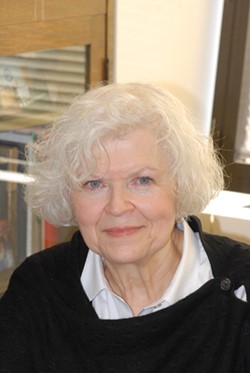
Prof. Dr. Frances Schoonmaker
Professor Emerita Teachers College, Columbia University, USA.
Bio: Frances Schoonmaker, Professor Emerita, Teachers College, Columbia University, directed the graduate teacher preparation program in childhood education and taught courses in history, theory and research in curriculum and teaching. She has taught, lectured, and consulted internationally in the Middle East and Asia, leading teacher education design initiatives for TC in Afghanistan, Jordan and Pakistan.
Professor Schoonmaker graduated from The University of Washington. Her MA is from Vanderbilt University and doctorate from Teachers College, Columbia University. She lives in Baltimore, Maryland. Book 3 of her The Last Crystal Trilogy was awarded the 2019 Agatha Award for Best Middle Grade/Young Adult Mystery.
Topic: Rethinking Access and Equity in Education
Abstract
In this essay, I argue that issues of racial injustice and educational inequity—including access and opportunity—laid bare by Covid- 19 in the US give us an opportunity to create a democratic culture that is more just, more caring, and more supportive of people with different ethnic, religious, economic, and cultural backgrounds. Nowhere was the effect of racial injustice more apparent than in access to health care, symptomatic of a cluster of larger issues that bear on educational opportunity and outcomes. I suggest that educators will not be able to erase the self- perpetuating effects of inequity, lack of access to education services, and racial injustice until they find ways of addressing the cultural myths embedded in our various histories, personal and national. Drawing on the US example and my experience as a teacher educator and author, I offer examples of how books for young people have perpetuated historical inaccuracies that need to be deconstructed and replaced with more powerful guiding principles. I suggest that digital schooling, a frustrating challenge for teachers and students, offers multiple openings for broadening perspectives and analyzing sources of information and disinformation. I call on conference participants to examine their own histories and to trace the emergence of discriminatory practices toward women and minorities that are passed on to prospective teachers and the students these teachers will influence and that continue to undermine educational opportunity in our several contexts. I suggest that whatever our specializations, as educators, we can to lead the way in modeling the challenging self-reflection necessary for such work and in nurturing talent for creative artists who can help us retell our stories in multiple ways.
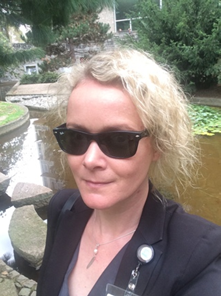
Dr. Caroline Manion
Senior Lecturer, Department of Leadership, Higher and Adult Education, Collaborative Specialization in Comparative, International and Development Education, OISE, University of Toronto, Canada
Bio: Caroline (Carly) Manion is a Senior Lecturer in the Department of Leadership, Higher and Adult Education (Educational Leadership and Policy program) and Collaborative Specialization in Comparative, International and Development Education at OISE, University of Toronto (Canada). Dr. Manion’s research has been supported by a variety of agencies and organizations and she has provided research services for the Aga Khan Foundation Canada, Hewlett Foundation, UNESCO, UNICEF, UNGEI, and the Ontario Ministry of Education, among others. She has published 2 co-edited collections, many book chapters, articles and technical reports in the areas of equity, gender, intersectionality, educational multilateralism and governance.
Topic: The Impacts of the COVID-19 Pandemic on Educational Equity Around the World: Mapping the Immediate and Longer-term Implications
Abstract
The COVID-19 pandemic has created the largest and longest global disruption of school-based education in modern history. Almost every country in the world has experienced school closures, affecting well over a billion children. While closing schools to mitigate transmission risks and help ensure public health and safety has widely been seen as a necessary policy response, research to date indicates that school closures have disproportionately affected already vulnerable populations and have compounded and exacerbated gaps in educational equity based on gender, race/ethnicity, socio-economic status and geographic location. In this presentation, Dr. Manion will first share findings from an international and comparative review of data and analysis generated since March 2020, to map some of the most troubling and immediate impacts of the COVID-19 pandemic on education access and equity. In the second part of the presentation, some of the longer-term implications of the pandemic’s negative effects on education access and equity will be discussed, including possible policy responses and innovations.
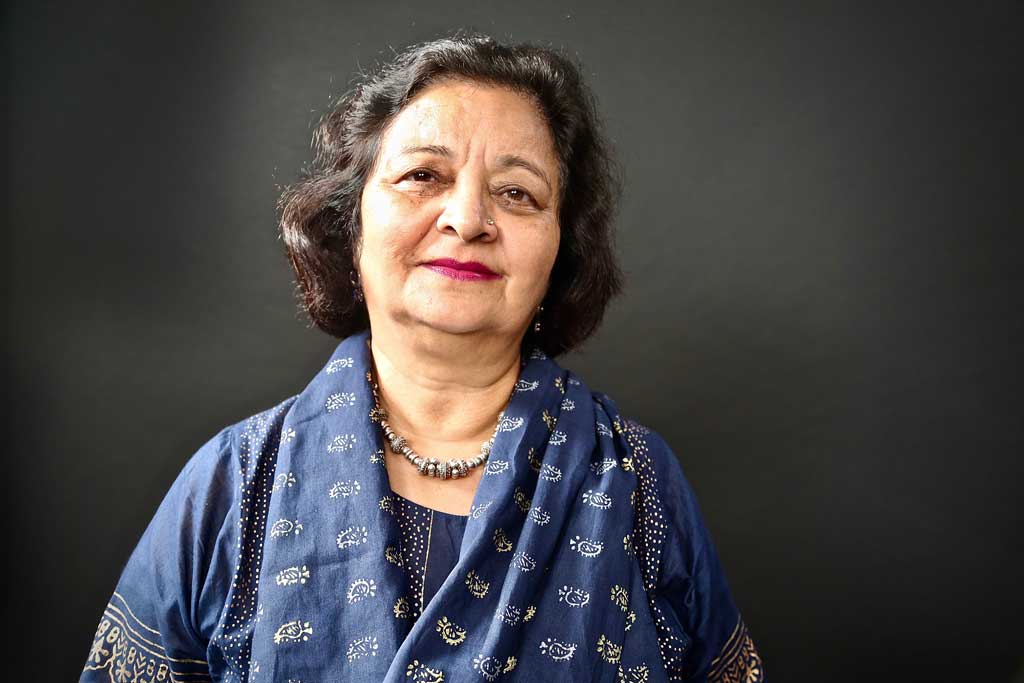
Baela Raza Jamil
CEO of Idara-e-Taleem-o-Aagahi (ITA) center for education and consciousness.
Baela Raza Jamil is a public policy specialist, innovator and an activist. She leads the citizens’ accountability learning initiative, the Annual Status of Education Report (ASER) Pakistan, and is the founder of the Children’s & Teachers Literature Festivals as a nationwide social movement. She is engaged with the COVID19 Response from ITA’s institutional platform, of ILM Association and with the Governments on TV/Ed Tech solutions “TeleSchool”; influencing govt. policy on school reopening and shift in academic calendar, etc. A former Technical Adviser to the Federal Ministry of Education, she is associated with several important institutions/initiatives at national and global levels. Baela is on the board of the Punjab Social Protection Authority (PSPA); member, Platform for Girls Education -Foreign and Commonwealth Office (FCO) UK; Commissioner at the International Commission on Financing Global Education Opportunity (Education Commission) chaired by Gordon Brown; Member Advisory Board Global Business Coalition for Education (GBC Ed); Chairperson SDG 4.2.1 Task force- Global Alliance to Monitor Learning UNESCO Institute of Statistics(UIS); and Member People’s Action for Learning Network (PAL Network). She is the managing trustee of the Sanjan Nagar Public Education Trust (SNPET) and Board Member ILM Association, Pakistan.
ITA has spearheaded a vibrant COVID-19 Response through a Campaign “Corona Saviours/Muhafiz”. Her recent article on COVID 19 appeared on April 23, 2020 – “When Emergencies become a Social Movement: COVID- 19 and Learning revolution in Pakistan.
Abstract
Covid-19 When Learning Never Stopped –
mobilizing communities and students for action
Civil society organizations (CSOs) are known for going that extra mile as social activists, risk takers, innovators and critics; their value lies in the value addition they generate as public good. Covid-19 pandemic, an unprecedented global emergency affecting rich and poor countries alike, although primarily a health crisis, affected the entire economy/production value chain, transport, and education services as social distance remains its essential preventive and safety action. Thus 188 countries of the world abruptly shut down their education systems affecting more than 1.6 billion students including 40 million in Pakistan (UNESCO 2020). However, this sudden closure triggered some CSO, deeply invested in the challenges of learning, equity and inclusion and committed to addressing the pervasive ‘learning crises” to ensure that learning never stopped, leveraged their social capital backed by collective trust. Idara-e-Taleem-o-Aagahi (ITA), a national level CSO mapped its beneficiaries, teachers, local activist locations and their communication channels, residential coordinates, cell phones (ordinary, androids, smart) and re-purposed learning content into small knowledge bundles and prompts for hybrid learning engagement through parents and community activists. The Covid-19 re-purposed learning initiatives were innovative to the core; they were shorter in time and learning chunks. Academics were blended with social emotional and life skills, combining subject knowledge with storytelling, arts and crafts and animations that kept both the students and their intermediaries (parents, teachers and local community activists) fully engaged. This was done through a voluntary value chain to keep learning afloat, strengthening human bonds through extraordinary trust at a distance. The experience of reaching out to more than 20,000 students and over 500 intermediary activists across two provinces, doubled the social capital through a meaningful two-way collective enterprise for the children, parents and teachers, creating ‘new education cadres’. With the reduction in intensity of C-19, the health crisis remains a real threat; schools have reopened for alternate days with staggered and reduced student daily presence with rigorous Covid SOPs. The pandemic has pushed state and non-state educators to redesign learning actions and platforms through blended approaches of face to face and distance digital solutions, more holistic, accelerated, cost effective and human above all.
Key Words; CSOs, social capital, learning chunks; blended learning, accelerated, social emotional, life skills, trust, education cadres
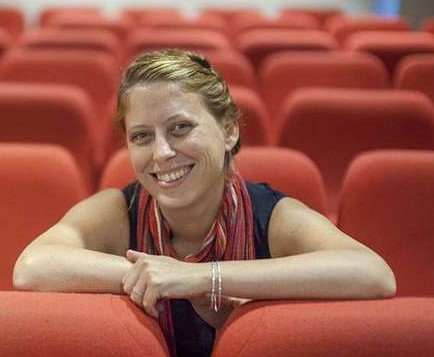
Dr. Paula Callus
Principal academic, National Centre for Computer Animation, Faculty of Media and Communication, Bournemouth University, UK
Bio: Paula Callus is a principal academic in the National Centre for Computer Animation, Faculty of Media and Communication at Bournemouth University. Her research expertise is in Sub-Saharan African animation. Callus has worked as a consultant and educator on the UNESCO Africa Animated projects in Kenya and South Africa, leading teams of artists to collaborate together to make animated shorts. She has conducted participant-observer fieldwork in the DRC, Zimbabwe and Kenya on animation and related artistic practices in the Sub-Saharan region resulting in publications on aspects of African animation such as subversive animation and politics in Kenya, remediated documentary through African animation and new technologies and animation in Morocco. She was BFX Conference director for two years and was part of an AHRC Network for Development grant, e-Voices, that was looking at marginalization and the use of digital technologies. She was co-responsible for the sub-theme; Arts, Activism and Marginalization that took place in Nairobi, Kenya and consisted of curating an exhibition, workshops with artists, and focus groups with activists. (bio in hyper link)
This presentation will draw upon the AHRC funded research – ArtoP {The Visual Articulations of Politics in Nigeria} to consider how artists in Nigeria mobilised themselves in the aftermath of COVID through digital spaces, continuing to express political voice with the Black Lives Matter movement and the recent SARS protests.
ArtoP has been documenting the range of visual material produced across Nigeria and the diaspora that engages in the range of political discourse including the politics of the everyday. Following the first reported case of COVID in Nigeria on the 28th February (https://www.bbc.co.uk/news/
The rapid adoption of mobile phone technologies in Nigeria, albeit with variable mobile infrastructures and reliable services, has meant that artists can have 2 or 3 phones to move across networks, learning digital creative practices using the same technologies, through YouTube and other shared online spaces of creativity.
These Nigerian artists have navigated digital spaces with considerable flair both before and during the pandemic, deploying agency and innovation to convene new audiences and challenge elite-driven political narratives about the political management of the pandemic. Moreover, the interactive spaces of Web 2.0 have enabled audiences themselves to transform and share digital images and express popular experiences of everyday life during the pandemic. These phenomena represent popular forms of subversive visual critique and are part of ongoing contestations of political authority and public health strategies in visual culture. At the same time the digital fluency and creativity demonstrated also draws the attention of state bodies and other parties who commission these artists to make work. This presentation will reflect upon the opportunities that are created through innovative responses to this ‘new normal’ as articulated by different artists and designers.
PANEL DISCUSSION
Topic: Crystal Ball Gazing: Opportunities and Challenges for Pakistan in a Post- Covid World
The global crises of Covid- 19 brought in a number of challenges but it has also created possibilities for border crossing, enabling opportunities for collaboration and learning across disciplinary areas, time zones and locations. Have the challenges taught us any lessons to create a superior ‘new normal’? Will the synergies achieved during Covid- 19 help make the world into a better place to live? This panel discussion aims to bring together academia, and professionals from health, business and other key sectors to provide a multi- disciplinary perspective on a vision of the world Post- Covid.
Moderator: Dr Fauzia Shamim, Dean and Professor, Faculty of Liberal Arts and Human Sciences, Ziauddin University.
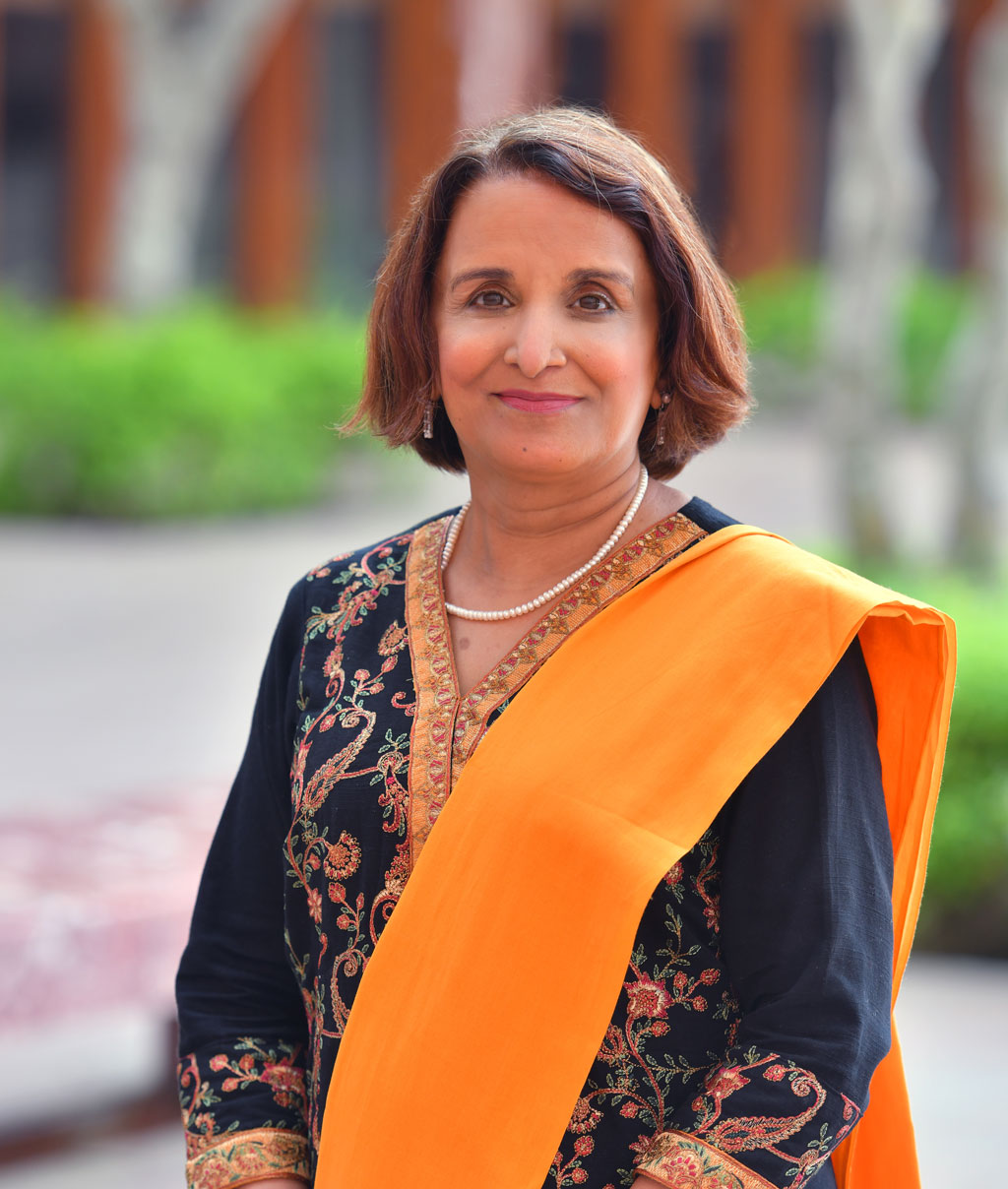
Dr. Anjum Halai, Regional Vice Provost and Dean, Humanities and Sciences, Aga Khan University
Professor Anjum Halai is vice provost and dean, Faculty of Arts and Sciences (FAS) at the Aga Khan University, Pakistan. Working with academic leaders she is responsible to develop and operationalize strategies to achieve the academic plans and program. As dean, FAS she is leading the development of academic program, financial plans and space plans for the Faculty of Arts and Sciences, Pakistan.
Dr. Halai has a long standing and international experience in education in low and/or middle income countries like Pakistan and those in East Africa. She obtained her doctoral degree from Oxford University, UK. She was an adjunct professor at the University of Alberta, Canada (2011- 2016) and a research fellow at the Centre for International Education and Development, University of Sussex, UK.
She has led large international research projects in education. Her research is focused on issues of social justice for teachers and learners who are marginalized on the basis of gender, language or other forms of exclusion in education. Anjum Halai also has a strong and enduring interest in researching mathematics education. She has published widely in international forums of repute.
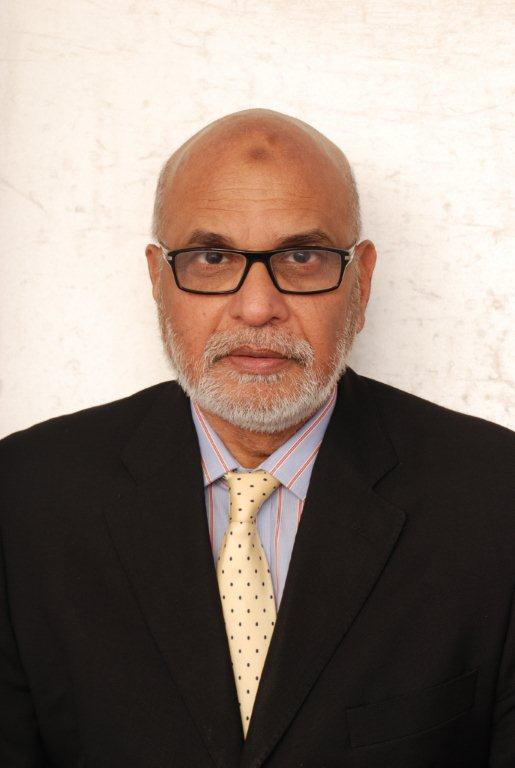
Dr. Abbas Zafar, Dean, Faculty of Health Sciences, Ziauddin University
Professor Abbas Zafar, dean, Faculty of Health Sciences and professor in otolaryngology graduated from DOW Medical College and then proceeded to the United Kingdom for higher education. He worked in UK in various capacities and was awarded the Fellowship of Royal College of Surgeons, Glasgow.
Prof. Abbas Zafar returned to Pakistan to pursue a career as ENT surgeon and held various academic positions. He was associated with KMDC as vice principal and professor in otolaryngology before joining Ziauddin University. At Ziauddin University, Dr. Abbas Zafar has served as professor and associate clinical dean.
Dr. Abbas has taken charge as dean, Faculty of Health Sciences since October 2016. His main interest is head and neck surgery, apart from being deeply involved in medical education, he has various publications to his credit in both national and international journals.
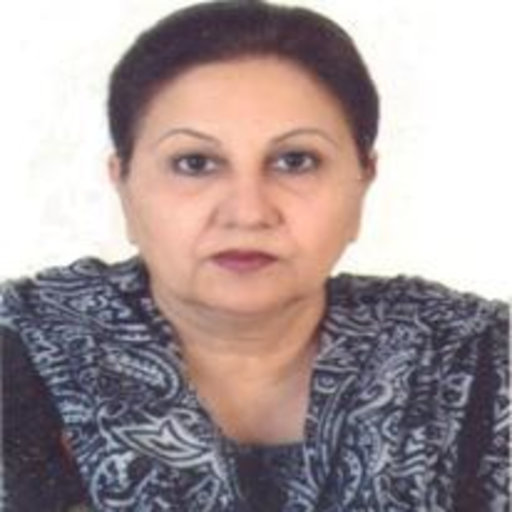
Prof. Dr. Talat Mirza, MBBS, M. Phil, PhD, Executive Director Research, Meritorious Professor, Pathology, Ziauddin University
Dr. Mirza is a leading scientist and histopathologist in Pakistan with extensive clinical and research experience along with postgraduate training leading to Master’s and PhD in pathology and varied subject areas like anatomy, radiology, ENT surgery and oral pathology. She has more than 20 Masters’ and 6 PhDs to her credit and six more PhDs registered presently at Ziauddin University.
A Dow University graduate who did her Master’s in histopathology followed by PhD from BMSI registered at Karachi University in collaboration with Leicester University, UK. She retired as meritorious professor of pathology in the highest BPS-22 grade after serving in several commanding positions at Dow University as dean, basic sciences, director, Institute of Postgraduate studies, founding director, Dow College of Biotechnology and Dow Research Institute of Biotechnology & Biomedical Sciences.
Her major contribution to Dow Diagnostic Research & reference lab was establishment of high technology histopathology set up. Presently serving as executive director research at Ziauddin University with a focus on PhD program along with designing and development of high technology molecular genetics research laboratories with a vision for physician scientist relationship, Dr. Mirza has more than 100 national and international publications to her credit with attendance as speaker/organizer of more than 135 workshops, seminars & conferences.
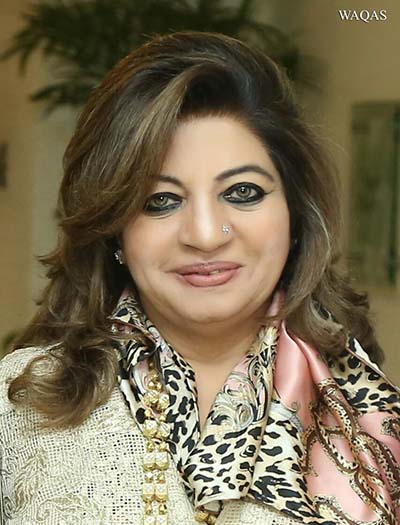
Dr. Seemi Jamali, Executive Director, Jinnah Postgraduate Medical Centre
Dr. Seemi Jamali was sponsored by JICA for an advanced degree in public health in 1993 and has been associated with the ER department, Jinnah Postgraduate Medical Centre (JPMC) for 29 years. Under her leadership, the ER department at JPMC developed expertise in handling all kinds of disasters and mass casualty incidents.
In recognition of her outstanding services in the ER department, she was awarded a scholarship for Post- Doctoral Fellowship in Public Health and Injury Prevention at John Hopkins University, Baltimore, USA.
Dr. Jamali also has the distinction of setting up the first ‘Dog Bite Centre’ in JPMC’s ER department and is the elected general secretary of ‘Rabies in Asia- Pakistan Chapter’. She received ‘Women Achiever’s Award’ in 2008. She is also the general secretary of ‘Society of Emergency Physicians of Pakistan’ and a member of ‘Women’s Welfare JPMC’ and ‘Medicine and Endocrine Foundation’.

Dr. Sara Salman, Head, World Health Organization (WHO), Sindh.
Dr. Sara is a medical graduate and currently working with World Health Organization as head of office, Sindh.
A public health professional with over 15 years of substantial, positive contribution to the development of health system and in program management.
Dr. Sara earned her double Master’s degree, in public administration (MPA) in public health (MPH) with distinction and gold medal.
She possesses in-depth knowledge of health issues related to third world countries and has initiated a hospital project in Karachi, Pakistan providing quality healthcare for the underprivileged under HEAL Foundation Pakistan.
Throughout her career, she has served on various scientific and professional committees and lectured in the fields of quality management, reproductive maternal, neonatal and child health.
She has also been instrumental in mobilizing medical help and assistance to the people of Sindh province.
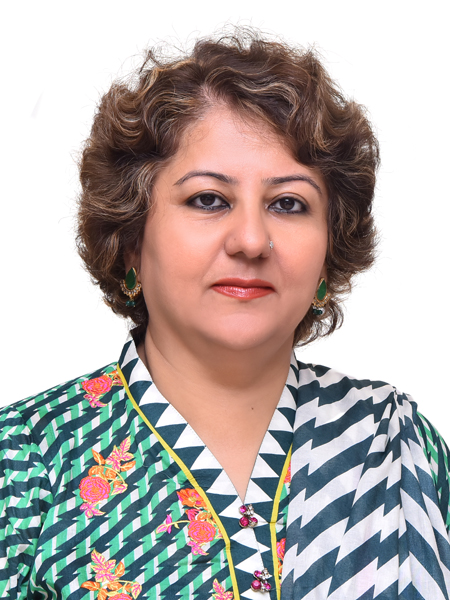
Dr. Nargis Asad is an associate professor and clinical psychologist at the Department of Psychiatry.
Currently she is also the interim chair for the Department of Psychiatry at AKU. Dr. Asad also chairs Working Group for Women (WGW) at AKU. The group works on gender issues through educational and research endeavors. More recently she is the co-chair for Women Faculty Forum (WFF), an initiative of the associate dean of faculty.
Dr. Asad is actively involved in clinical and research work surrounding women / adolescent mental health, domestic violence and suicide. Another one of her overarching professional interests is in the area of Trauma, she is the co-founder of Mental Trauma and Resilience Interest Group (M-TRIG) at AKU. One of the primary focus areas of this interest group is abuse and violence on children and women.
Her research work is primarily multidisciplinary with colleagues at AKU and international partners.
CONFERENCE SCHEDULE
First Multidisciplinary International Conference Schedule
Day 1, Friday
13th November, 2020
Pre- Conference Workshops
| Workshop | Time | Workshop Leader |
| 01 | 9:30- 11:30 am | High Scope- ECCE, Active Involvement with People, Materials, Events and Ideas
Presenter: Amna Hussain Organizer: Dr. Kiran Hashmi Venue: Ziauddin College of Education |
| 02 | 9:30- 11:30 am | The World of Fake News and Mis/ Dis Information in the Local Context
Presenter: Shaheryar Popalzai Organizer: Ata Syed Venue: Ziauddin College of Media Sciences |
| 03 | 9:30- 11:30 am | Reducing the Pedagogy of Poverty
Presenter: Abbas Hussain Venue: Ziauddin College of Languages, Literature and Culture |
Inaugural Program
| 3:00-3:30 pm
|
Tilawat: Dr. Abdur Rehman
National Anthem Welcome Address: Prof. Dr. Peerzada Qasim Raza Siddiqui, Vice Chancellor, Ziauddin University Conference Highlights: Prof. Dr. Fauzia Shamim, Dean FLAHS and Conference Chair Address: Dr. Nida Hussain, Pro-Chancellor, Ziauddin University Master of Ceremony: Fatima Jafri, College of Languages, Literature and Culture |
Keynote Address I
Day 1, Friday
13th November, 2020
Chair: Prof. Dr. Peerzada Qasim Raza Siddiqui, Vice Chancellor, Ziauddin University
Co- Chair: Prof. Dr. Fauzia Shamim, Dean, Faculty of Liberal Arts and Human Sciences
| Time | Speaker |
| 3:30- 4:10 pm
|
Prof. Dr. Shaheen Sardar Ali, Rector, National Academy of Higher Education, Higher Education Commission
Diversity, Inclusion, Equity: Synergies and Challenges in the wake of Covid- 19 |
Session I
Day 1, Friday
13th November, 2020
Chair: Rana Hussain, Principal, College of Education, Ziauddin University
Co-Chair: Dr. Kiran Hashmi, Assistant Professor, College of Education, Ziauddin University
| Access and Equity in Education and Health | |
| Time | Speaker |
| 4:15- 4:40 pm | Plenary Speaker 1:
Ms Baela Raza Jamil, CEO, Idara-e-Taleem-o-Aagahi (ITA), Centre for education and consciousness Covid-19, When Learning Never Stopped – Mobilizing Communities and Students for Action |
| 4:45- 5:10 pm | Plenary Speaker 2:
Prof. Dr. Frances Schoonmaker, Professor Emerita, Teachers’ College, Columbia University, USA Rethinking Access and Equity in Education |
| 5:15- 5:40 pm | Plenary Speaker 3:
Dr. Caroline (Carly) Manion, Department of Leadership, Higher and Adult Education & Collaborative Specialization in Comparative, International and Development Education, OISE, University of Toronto, Canada The Impacts of the Covid-19 Pandemic on Educational Equity Around the World: Mapping the Immediate and Longer-Term Implications |
| 5:40- 7:00 pm | Paper Presentation
Facilitator: Dr. Kiran Hashmi |
| 5:45- 6:00 pm | Visually Impaired Students and Challenges of Digital Literacy
Kashif Iqbal, Dr. Samina Ashraf – Punjab University |
| 6:05- 6:20 pm | Teaching in a Virtual Classroom
Marium Farooq, AKU-IED |
| 6:25- 6:40 pm | Distance learning amid Covid-19 Epidemic: Learners Perspective
Fatima Javed, Ruquia, NED University, M. Hasan Abbasi, Bahria University |
| 6:45- 7:00 pm | School Teachers and Principals’ Experiences during Covid- 19
Azra Naseem, Fatima Ahsan, Razia Fakir Mohammad, Tesneem Anwar, Sohail Ahmed, Aga Khan University |
Day 2
14th November, 2020
| 9:00- 9:15 am
|
Welcome and Opening Announcements
Prof. Dr. Fauzia Shamim, Dean, Faculty of Liberal Arts and Human Sciences |
Keynote Address II
Day 2, Friday
14th November, 2020
Chair: Rana Hussain, Principal, College of Education, Ziauddin University
| Time | Speaker |
| 9:15- 9:55 am
|
Prof. Dr. Peter McLaren, Distinguished Professor, Critical Studies, College of Educational Studies, Chapman University, USA
Education, the Pandemic and Capital |
Session II
Day 2, Saturday, 14th November, 2020
| Crossing Boundaries, Extending Horizons: Implications for Language, Culture and Identity | |
| Time | Speaker |
| 10:00- 10:25 am | Plenary Speaker 4:
Dr. Aymen ElSheikh, Department of Liberal Arts, Texas A&M University at Qatar, President TESOL Africa. Language, Culture, and Identity: Implications for Language Teaching and Learning in an Era of Mobility and Pandemic |
| 10:30- 11:30 am | Paper Presentation
Facilitator: Marium Ezam |
| 10:30- 10:45 am | Mapping the Patterns of Gender Inequalities in Covid-19
Uzma Rashid, University for Peace, Costa Rica |
| 10:50- 11:05 am | Motivation and Attitudes of Undergraduate Students in Online ESL Classrooms
Hafiza Marium, NED University, Syeda Sarah Junaid, Jinnah University for Women, M. Hassan Abbasi, Bahria University |
| 11:10- 11:25 am | Analyzing Reading –to-Write Construct using Hybrid Model
Shumaila Omar, IBA & IVS |
| Panel Discussion
Moderator: Mr Abbas Hussain, Director, Teachers Development Centre Co- Host: Marium Ezam |
|
| 11:30- 12:00 pm | Dr. Shama Dossa, Associate Professor, Social Development Policy, Habib University, Karachi |
| Dr. Jaffer Ahmed, Director, Institute of Historical and Social Research Sohail University, Karachi | |
| Dr. Habibullah Khan Pathan, Director, English Language Development Centre (ELDC), Mehran University of Engineering and Technology, Jamshoro | |
Chair: Prof. Dr. Fauzia Shamim, Dean, Faculty of Liberal Arts and Human Sciences
Co-Chairs: Fatima Jafri and Marium Ezam, College of Languages, Literature and Culture
Ziauddin University
Session III
Day 2, Saturday, 14 November 2020
Chair: Dr. Sara Zubair, Consultant, Curriculum Development, National Academy of Higher
Education, HEC
| The HEC National Faculty Development Program: Preparing New Faculty to Create Inclusive and Equitable Classrooms in the Post-Covid-19 Era | |
| Panel Discussion: 12:00- 2:00 pm | |
| 12:05- 12:15 pm
& 1:15- 1:25 pm |
Dr. Sara Zubair, PhD,
Consultant – Curriculum Development, National Academy of Higher Education (NAHE), Higher Education Commission of Pakistan |
| 12:15- 12:30 pm | Dr. Shazia Awan,
College of Continuing Education, Dalhousie University, Halifax, Nova Scotia, Canada |
| 12:30- 12:45 pm | Dr. Steve J. Burian, Professor, Civil and Environmental
Engineering, Director, University of Utah Water Center, and Associate Director, University of Utah Global Change and Sustainability Center, Salt Lake City, UT, USA |
| 12:45- 1:00 pm | Dr. Hassaan F. Khan,
Environmental Science, Dhanani School of Science and Engineering, Habib University, Karachi |
| 1:00- 1:15 pm | Dr. Saima Sherazi,
School of Languages, Linguistics, and Film Queen Mary University of London, UK |
| 1:30- 2:00 pm | Q&A |
Session IV
Day 2, Saturday, 14 November 2020
Chair: Tehmina Lodhi, Principal, College of Media Sciences, Ziauddin University
Co- Chair: Latif Abbasi, Associate Professor, College of Media Sciences, Ziauddin University
| How Limitations Breed Innovation: Communication Renaissance in the Wake of Covid- 19 | |
| 2:45- 3:10 pm | Plenary Speaker 5:
Dr. Paula Callus, Principal Academic, National Centre for Computer Animation, Faculty of Media and Communication, Bournemouth University, UK How Limitations Breed Innovation: Communication Renaissance in the Wake of Covid-19 |
| Panel Discussion: 3:15- 4:15 pm
Moderator: Dr. Rana Asif: a popular socialist and blogger in the Media industry with over 15 years’ experience. He has managed different celebrities through his good PR and also a content creator.
|
|
| 3:15- 4:15 pm | Vidhya Tiwari, Co-Founder of ANYA (Branding, PR, Guest-listing, Trunk Shows, & Events), Pageant Ambassador, SAVVY Mrs. India, Director & Editor-In- Chief, TROFII, (City Based Food & Nightlife Magazine) |
| Karuna A. Thawani
Journalist, Radio Tarana Host/ RJ and Banker |
|
| Mariana Magatto,
Brazilian Opera Singer and Music Educator. |
|
| Attika Choudhary,
BBC Broadcast Journalist and Presenter |
|
| Adnan Faisal, CEO, FHM, Pakistan | |
Session V
| Concluding Session 4:30- 6:00 pm | |
| 4:30- 5:30 pm | Panel Discussion
Topic: Crystal Ball Gazing: Opportunities and Challenges for Pakistan in a Post- Covid-19 World Moderator: Prof. Dr. Fauzia Shamim |
| Dr. Anjum Halai, Regional Vice Provost and Dean, Humanities and Sciences, Aga Khan University | |
| Dr. Abbas Zafar, Dean, Faculty of Health Sciences, Ziauddin University | |
| Prof. Dr. Talat Mirza, Executive Director Research, Meritorious Professor, Pathology, Ziauddin University | |
| Dr. Seemi Jamali, Executive Director, Jinnah Postgraduate Medical Centre, Karachi | |
| Dr. Sara Salman, Head, World Health Organization (WHO), Sindh
|
|
| Dr. Nargis Asad, Associate Professor, Clinical Psychologist, Interim Head, Department of Psychiatry, Aga Khan University | |
| 5:30- 5:50 pm | Concluding Presentation and Closing Remarks
Dr. Asim Hussain, Chancellor, Ziauddin University |
| 5:50- 6:00 pm | Song-A prayer |
Day 2, Saturday 14 November 2020
ABSTRACTS
CALL FOR PAPERS
ZU – FLAHS First International Virtual Conference 2020
Ziauddin University’s Faculty of Liberal Arts and Human Sciences (FLAHS) is pleased to announce the CALL for proposals OPEN for its First Multidisciplinary International Virtual Conference.
Theme: Diversity, Inclusion and Equity: Synergies and Challenges in the wake of COVID-19
Dates: Friday 13th & Saturday 14th, November 2020
We would like to invite presentations related to the following subthemes and welcome papers from a variety of interdisciplinary fields.
- Crossing Boundaries, Extending Horizons: Implications for Language, Culture and Identity
- Access and Equity in Education and Health
- How Limitations Breed Innovations: Communication renaissance in the wake of Covid-19
Last date to send in your abstracts: 12 October, 2020
Email Proposals at: [email protected]
Proposal Guidelines
| Type of Presentation | Time
Duration |
Description of the Presentation | Proposal Content |
|
Paper |
20 minutes |
Oral Presentation: a) research-oriented OR b) evidence-based position paper |
Please Include:
|
Please note:
- As this is a multidisciplinary conference, presenters should keep the general audience in mind and not just scholars in a specific field.
- For research-oriented papers, please include Research Questions, Findings and Implications.
- For Position papers, please include clear arguments supported by policy, research and/or practice.
Presenter 1
Name:
Designation:
Institution:
Email:
Contact #:
Presenter 2
Name:
Designation:
Institution:
Email:
Contact #:
| Title (Not more than 7 words):
|
| Abstract (50 word):
|
| Summary (250-300 words):
|
Bio (50 words):
IMPORTANT DATES:
- Deadline for the Submission of Abstracts: 12th October, 2020
- Notification to Presenters- Acceptance of Abstracts: 25th October, 2020
- Paper Submission: 10th November, 2020
- Pre- Conference Institutes: 13th November, 2020
- Conference Days: 13- 14 November, 2020
PRE-CONFERENCE WORKSHOPS
1. Pre- Conference Workshop Date: 13th November, 2020
| Facilitator | Topic | Venue | Time | Registration Fee |
|
Ms. Amna Hussain |
HIGH SCOPE –ECCE Active Involvement with People, Materials, Events, and Ideas
|
ZU College of Education, C- 46, Block 13, F.B. Area. |
9:30- 11:30 am |
1000/= with certificate |
Facilitator’s Profile:
Amna Hussain has an experience of over 17 years of working in various public and private sector organisations as an Early Childhood Education (ECE) expert. She has done her M.Ed. and is currently enrolled in M.Phil (education) programme. She has worked as an ECE coordinator and B.Ed. and M.Ed. lecturer in a reputed teacher education institution in Karachi.
Currently, she is working as an Early Childhood Care and Education (ECCE) consultant with School Education and Literacy Department (SELD), UNICEF and Oxford University Press (OUP). She is the author of the series “The Art Lab” and a co-author of the ECCE Provincial Curriculum 2018.
Abstract
This exciting yet enriching session for Early Years Teachers by Ms Amna Hussain will educate the participants with the newly designed ECCE curriculum 2018 (Government of Sindh) prepared on the High Scope approach. Throughout the session, the teachers will perform hands-on activities, develop low cost materials, and practice and prepare daily routines for young learners.
2. Pre- Conference Workshop Date: 13th November, 2020
| Facilitator | Topic | Venue | Time | Registration Fee |
|
Mr. Shaheryar Popalzai |
The World of Fake news and Mis/disinformation: The Local Context |
ZU College of Media Sciences, 4/B Shahrah-e- Ghalib, Clifton. |
9:30- 11:30 am |
1000/= with certificate |
Facilitator’s Profile
Shaheryar Popalzai is a journalist and digital strategist with over 10 years’ experience working with newsrooms in Pakistan and abroad. He has worked across the industry in team lead and advisory roles, working on innovation, strategy, content and convergence
Abstract
The session will cover the world of fake news and mis/disinformation in the local context. We will look at the types, how to fact check and counter mis/disinformation. A smart device or laptop are highly recommended for this session so we can learn as we go.
3. Pre- Conference Workshop Date: 13th November, 2020
| Facilitator | Topic | Venue | Time | Registration Fee |
|
Mr. Abbas Husain |
Reducing the Pedagogy of Poverty
|
ZU College of Languages, Literature and Culture, BC-05, H.A Arcade, Block 1, Clifton, Karachi |
9:30- 11:30 am |
1000/= with certificate |
Facilitator’s Profile:
Abbas Husain is known as a dedicated teacher trainer and educator all over Pakistan. He is committed to the exploration of each participant’s voice, and is known for his highly interactive facilitating style. He is known as an articulate advocate of the intellectual authority of teachers in society. His expertise in “soft skills” and interest in Islamic spirituality gives an excellent ambiance to all his workshops.
As Director Teachers Development Centre he leads a team of teacher trainers and has so far reached over 85,000 teachers in schools of every variety in the country. He strives to be in touch with the issues and tensions of young people in every context. In February 2020, Millennium Institute of Professional Development Islamabad honored him with the LIFETIME ACHIEVEMENT AWARD by Mohsin e Pakistan Dr. A.Q. Khan
Abstract
Observers of school systems have noted that 89% of the teacher’s time goes in what may be called administrative nonteaching tasks. Yong Zhao (2020) has said “No human being should do what a machine can do”. Modern technology has made it possible to reduce the burden of many of these tasks and release time for the human act of teaching.
In this workshop, Abbas Husain will analyze the fourteen “the core acts of urban teaching” [Habermann,1990] which are so salient to the imagination of teachers, Heads, parents and society as a whole that efforts to change them have not been successful so far. This present global crisis is perhaps an opportunity for a powerful push towards changing the “grammar’ of schooling to one of education.
REGISTRATION
For Online Registration log on to: registration.zu.edu.pk/conf-register

